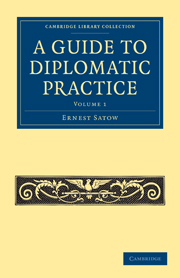by A.G. NOORANI

This is the season of the order of the boot. The not always tastefully suited and booted ambassador has been shown the door whether by the masters in his country or by his host country. Turkish President Recep Tayyip Erdogan deserves high praise for sacking from Istanbul as many as 10 ambassadors from the Western world. He relented after an ‘explanation’ by the American embassy. American ambassadors are notorious for big mouths and loose tongues.
South Arabia and the Gulf states, riled at the statements of Lebanon’s foreign minister on their policies in Yemen, asked for the recall of Lebanon’s ambassadors in their countries.
“Diplomacy,” wrote Sir Harold Nicholson in his classic by the same name, “is not a system of moral philosophy; it is, as Sir Ernest Satow defined it, ‘the application of intelligence and tact to the conduct of official relations between the governments of independent states’. The worst kinds of diplomatists are missionaries, fanatics and lawyers; the best kind are the reasonable and humane sceptics. Thus it is not religion which has been the main formative influence in diplomatic theory; it is common sense. And it was through trade and commerce that people first learnt to apply common sense in their dealings with each other.”
Zafrullah Khan performed brilliantly in the UN Security Council in the first months of 1948, putting in the shade two egregious pomposities Nehru had sent there, N. Gopalaswami Ayyangar and M.C. Setalvad. Zafrullah proved a disaster later as Pakistan’s Krishna Menon. He was rude to the UN mediator on Kashmir Sir Owen Dixon.
The bible on diplomacy is A Guide to Diplomatic Practice by Sir Ernest Satow who distinguished himself as Britain’s ambassador to China. First published in 1917 it is still in vogue. He sagely wrote that “a good diplomatist [as the word was used in former times] will always endeavour to put himself in the position of the person with whom he is treating and try to imagine what he would wish, do or say, under the circumstances”.
This advice has great value and is not restricted to diplomats — politicians, lawyers and businessmen can profit by it too. One of Pakistan’s, indeed South Asia’s, most accomplished diplomats was a businessman Jamsheed Marker; sadly no more. Iqbal Akhund won equal fame in the chanceries of the world.
It was a British ambassador, Sir Henry Wotton, who expressed the view that “an ambassador is an honest man who is sent to lie abroad for the good of his country”. What is not stated is that Sir Henry scribbled this remark as a joke in an album at Augsburg. The remark was discovered by one of his enemies, who reported it to James I. That monarch was profoundly shocked by the cynicism of his envoy; in vain did Wotton plead that he had scribbled this apophthegm merely as “merriment”. King James refused to employ him again.
One thing a diplomat or a lawyer cannot afford to lose is a reputation for trustfulness. The issues of our times are far more complex and complicated than they were when Sir Ernest Satow or Sir Harold Nicolson wrote. They require a high degree of specialisation.
But specialisation is no substitute for wisdom and sound judgement. George F. Kennan was one of the world’s most highly respected Soviet specialists when he was appointed as the US ambassador to the Soviet Union by president Truman in 1952.
Dawn for more
